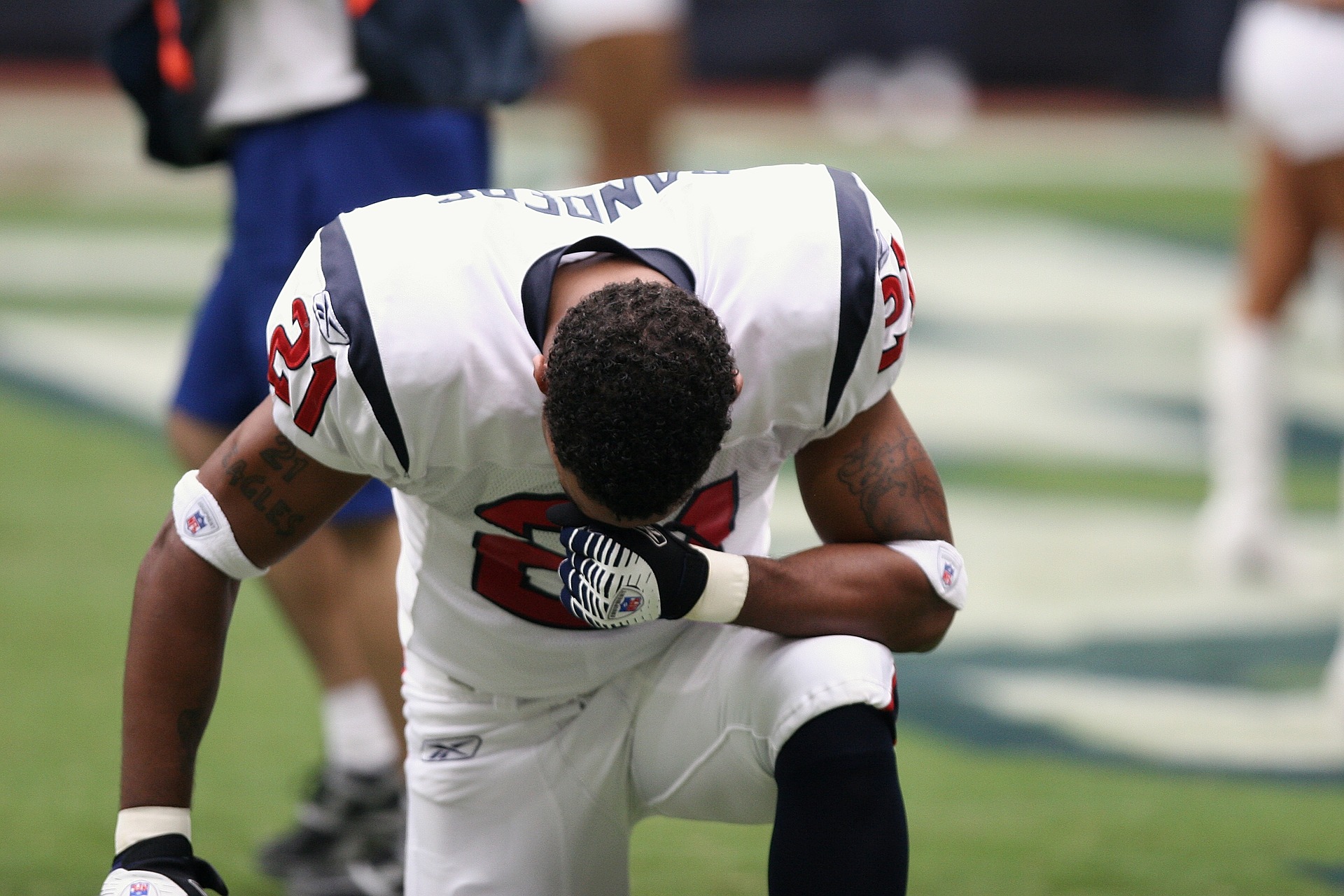I love the NFL. Some of my earliest memories are watching football with my dad on Sunday afternoons. He is a die-hard Pittsburgh Steelers fan, and I have grown into following his lead. I am a huge fan of the game, an avid fantasy football player, and was the quarterback for my high school team.
In recent weeks, professional football has been enveloped in a giant controversy that seems to outline the divide in this country. No matter what you believe, it feels like you cannot get away from this particular controversy. From ESPN to CSPAN to CNN to Comedy Central, this story has caught on like wildfire and overwhelmed popular media for weeks, making seemingly everyone angry.
Some are angry at the players, some are angry at the people angry at the players, and others still are angry that their politics-free Sunday distraction has been invaded. I would argue that all of these people are correct on some level, however, there is an opinion that has been growing more common on all sides that I believe speaks more about our country than the players kneeling.
At this point in the debate, I think I have heard every take on earth. To me, the most important disagreement is whether or not this protest is disrespectful to the armed forces, first responders, police and fire workers, and others who bravely wear the flag of the United States every day. And even more specifically, is the act of kneeling during our nation’s anthem disrespectful to those who gave their lives for it?
Those who are kneeling or demonstrating during the anthem (as well as those supporting them) will tell you that it is not because of the intention behind the act. These people will tell you that kneeling during the anthem is symbolic of the fact that the country is not the same for those of color as it is for white people, and that this protest is in no way directed at those who fought and died for their right to play football and protest in the United States.
Those of a different opinion might tell you that standing for the anthem is a sign of respect for those that came before you and for those still fighting. That this song means more than the issues in our society and symbolizes the struggle for everything we hold dear. They might argue that standing is the very least a person can do to honor those who are responsible for the rights and luxuries the American people hold dear today.
In all honesty, I find both of these arguments persuasive. I understand the nuance of the player’s protest and the intentions behind it. As a sports fan, I appreciate when a player uses their platform to talk about the issues in our society. Often, these players speak not only for themselves but for entire communities they have left behind. Many players playing professional sports today come from terrible situations and understand what it is like to be the victim of racial profiling, bigotry, and worse. How can I judge the opinions of other people from my couch at home with no knowledge of what they have been through or why they feel this way?
But with that said, how can I turn around and tell the family of a fallen soldier who is offended by this protest that their opinions and feelings do not matter? To many Americans, the anthem is sacred and is so intertwined with our military and others that they cannot be looked at separately. Who am I to tell these Americans that their thoughts and feelings do not matter because someone did not intend offense?
Both of these arguments are legitimate, and this debate is healthy and important as we come to grips with the issues of race in this country. However, there has been a growing sentiment in the country that the league and its players should be punished for their actions. This has come in many forms, headed by our president.
On Twitter, President Trump has threatened financial repercussions if the league did not change its official rules on kneeling for the anthem. In a speech that sparked the climax of this debate, President Trump called the players who kneeled “sons of bitches” and demanded that the league suspend or cut them for their protests. President Trump is not alone in these sentiments, and there are many people in this nation who agree with him.
I know that freedom of speech does not mean freedom from consequences, but I believe that there is no one correct answer in this debate. And to me, as an American who appreciates what I have been given, threatening the league and those players for rejecting blind nationalism and enacting their first amendment rights feels an awful lot like censorship to me.
If you have an opinion, share it. If you disagree, debate it. But there is a huge difference between public debate and what we are seeing from a segment of the population. Free speech dies when people are not willing to listen, so here is to keeping free speech alive.

